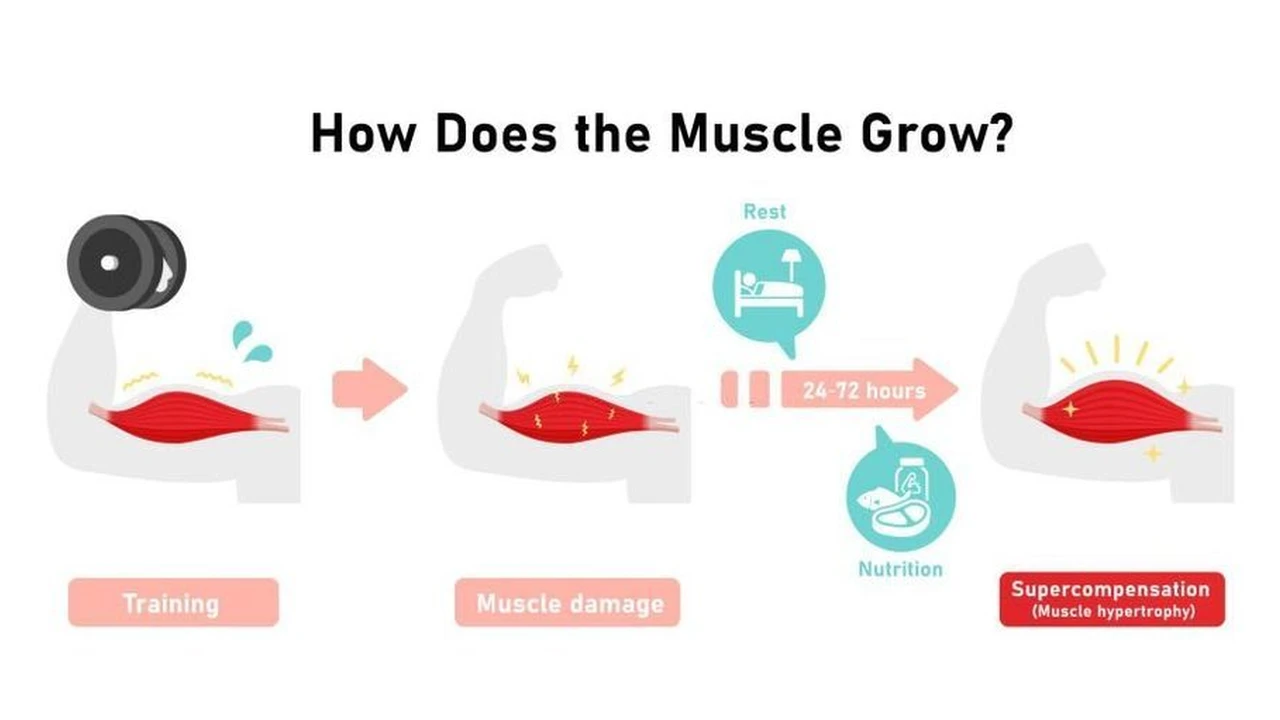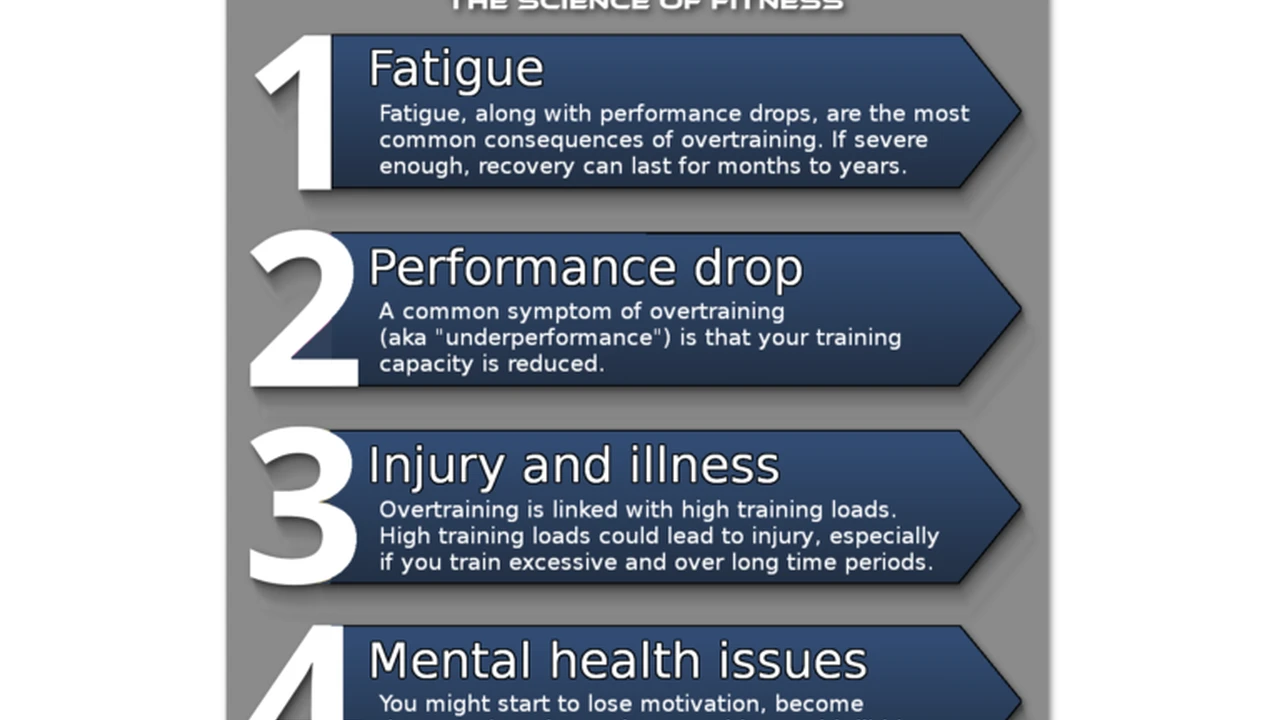The Science of Muscle Hypertrophy: Understanding Growth
Alright, here's the content for the third article in the 'Advanced Gym Fitness Strategies' category, focusing on "The Science of Muscle Hypertrophy: Understanding Growth," adhering to all your specifications.Understanding muscle growth can feel like navigating a complex maze, but it doesn't have to be. This article breaks down the science of hypertrophy, exploring the key factors that contribute to building bigger muscles. We'll dive into the mechanisms of muscle protein synthesis, the importance of nutrition and training, and even recommend some specific products to enhance your gains. Get ready to unlock the secrets to maximizing your muscle-building potential.

Understanding Muscle Hypertrophy Mechanisms for Optimal Growth
Muscle hypertrophy, simply put, is the increase in the size of muscle cells. It's not just about lifting heavy things; it's a complex process driven by a combination of factors. The primary driver is muscle protein synthesis (MPS), which is the process of building new muscle proteins. When you lift weights, you create microscopic damage to your muscle fibers. This damage signals the body to repair and rebuild these fibers, making them larger and stronger in the process.
There are three main types of hypertrophy: sarcoplasmic, myofibrillar, and metabolic. Sarcoplasmic hypertrophy involves an increase in the volume of the sarcoplasm, the fluid surrounding the muscle fibers. This can lead to a "pumped" look but doesn't necessarily translate to increased strength. Myofibrillar hypertrophy, on the other hand, involves an increase in the size and number of myofibrils, the contractile units of muscle fibers. This type of hypertrophy leads to increased strength and power. Metabolic hypertrophy focuses on increasing the energy production capacity of the muscle.
To maximize hypertrophy, you need to optimize MPS. This means providing your body with the necessary building blocks (protein) and stimuli (resistance training). The type of training you do also matters. For example, training in the 6-12 rep range is generally considered optimal for hypertrophy, as it provides a good balance of mechanical tension and metabolic stress.
The Role of Nutrition in Muscle Hypertrophy Fueling Muscle Growth
Nutrition is arguably just as important as training when it comes to muscle growth. You can't build a house without bricks, and you can't build muscle without protein. Protein provides the amino acids necessary to repair and rebuild muscle tissue.
Aim for a protein intake of around 1.6-2.2 grams per kilogram of body weight per day. This can be achieved through a combination of whole foods and protein supplements. Good sources of protein include lean meats, poultry, fish, eggs, dairy, and plant-based sources like beans, lentils, and tofu.
Carbohydrates are also important for muscle growth, as they provide energy for training and help to shuttle nutrients into muscle cells. Choose complex carbohydrates like whole grains, fruits, and vegetables over simple sugars.
Fats are often overlooked, but they play a crucial role in hormone production, which is essential for muscle growth. Focus on healthy fats like those found in avocados, nuts, seeds, and olive oil.
Don't forget about hydration! Water is essential for all bodily functions, including muscle protein synthesis. Aim to drink plenty of water throughout the day, especially before, during, and after your workouts.
Effective Training Strategies for Muscle Hypertrophy Maximizing Gains
Resistance training is the key stimulus for muscle growth. To maximize hypertrophy, you need to apply progressive overload, which means gradually increasing the weight, reps, or sets you perform over time.
Focus on compound exercises like squats, deadlifts, bench press, and overhead press. These exercises work multiple muscle groups simultaneously, leading to greater overall muscle growth.
Use a variety of rep ranges to target different types of hypertrophy. As mentioned earlier, the 6-12 rep range is generally considered optimal, but you can also incorporate lower rep ranges (1-5) for strength and higher rep ranges (15+) for muscular endurance.
Don't be afraid to experiment with different training techniques like drop sets, supersets, and rest-pause sets to further challenge your muscles.
Most importantly, listen to your body and allow for adequate rest and recovery. Overtraining can lead to injury and hinder muscle growth. Aim for at least 7-9 hours of sleep per night.
Supplement Recommendations for Muscle Hypertrophy Enhancing Performance and Recovery
While supplements are not necessary for muscle growth, they can provide a slight edge and help you optimize your results.
Whey Protein
Whey protein is a fast-digesting protein source that is ideal for post-workout consumption. It helps to quickly replenish amino acids and kickstart muscle protein synthesis.
Product Recommendation: Optimum Nutrition Gold Standard 100% Whey.
Usage: Mix one scoop with water or milk and consume immediately after your workout.
Comparison: Compared to other whey protein brands, Optimum Nutrition is known for its high quality, great taste, and affordability.
Price: Approximately $60 for a 5-pound tub.
Creatine Monohydrate
Creatine is one of the most well-researched and effective supplements for increasing strength and muscle mass. It works by increasing the availability of ATP, the primary energy source for muscle contractions.
Product Recommendation: Transparent Labs Creatine HMB.
Usage: Take 5 grams per day, either before or after your workout. No loading phase is required.
Comparison: Transparent Labs is known for its high-quality ingredients and transparent labeling. It also includes HMB, which may further enhance muscle growth and recovery.
Price: Approximately $50 for 30 servings.
BCAAs (Branched-Chain Amino Acids)
BCAAs are essential amino acids that play a crucial role in muscle protein synthesis and recovery. They can help to reduce muscle soreness and fatigue after intense workouts.
Product Recommendation: Scivation Xtend BCAA.
Usage: Mix one scoop with water and sip throughout your workout.
Comparison: Scivation Xtend BCAA is a popular choice due to its great taste and added electrolytes, which can help to improve hydration.
Price: Approximately $30 for 30 servings.
Pre-Workout Supplements
Pre-workout supplements can help to improve energy, focus, and performance during your workouts. They typically contain ingredients like caffeine, beta-alanine, and citrulline malate.
Product Recommendation: C4 Original Pre-Workout.
Usage: Mix one scoop with water and consume 20-30 minutes before your workout.
Comparison: C4 Original is a popular and affordable pre-workout that provides a good boost of energy and focus.
Price: Approximately $30 for 30 servings.
Optimizing Rest and Recovery for Muscle Hypertrophy
Rest and recovery are just as important as training and nutrition when it comes to muscle growth. Your muscles don't grow in the gym; they grow when you're resting.
Aim for at least 7-9 hours of sleep per night. Sleep is when your body repairs and rebuilds muscle tissue.
Manage stress levels. Chronic stress can hinder muscle growth by increasing cortisol levels, a hormone that breaks down muscle tissue.
Consider active recovery techniques like light cardio or stretching to improve blood flow and reduce muscle soreness.
Don't be afraid to take rest days. Sometimes, the best thing you can do for your muscles is to give them a break.
:max_bytes(150000):strip_icc()/277019-baked-pork-chops-with-cream-of-mushroom-soup-DDMFS-beauty-4x3-BG-7505-5762b731cf30447d9cbbbbbf387beafa.jpg)






